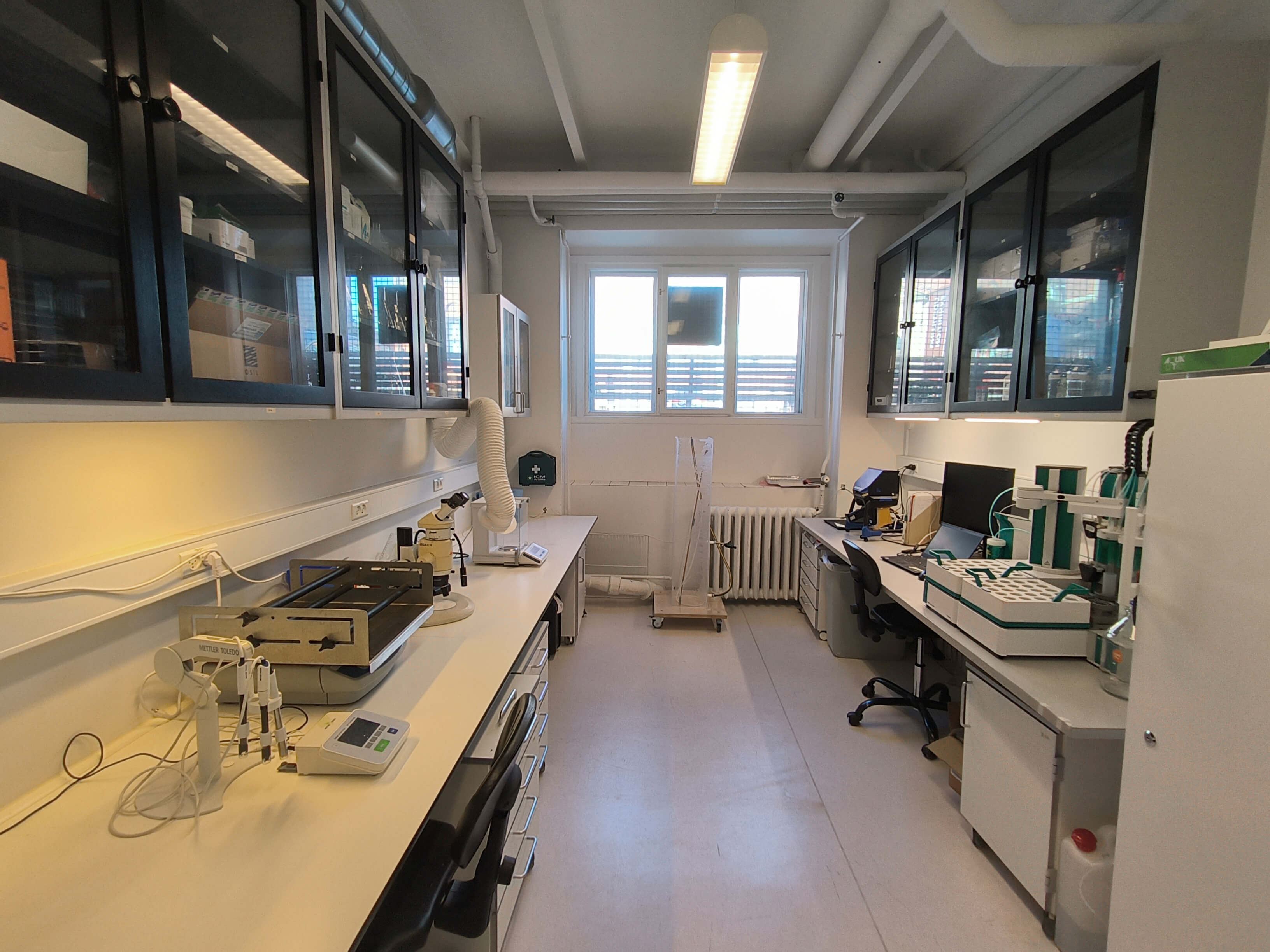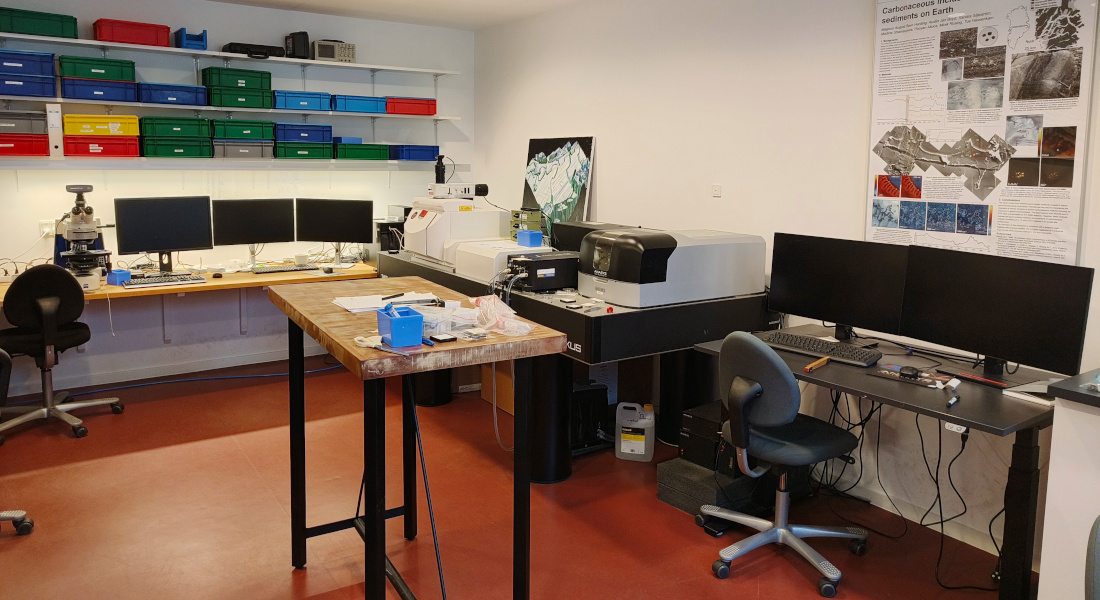Geobiology labs
The Geobiology laboratories at the Globe Institute are equipped for wet chemistry and spectroscopy-based analyses, supporting interdisciplinary research in environmental geochemistry, biogeochemical interactions, and the origins of life.
The labs are shared by two main research groups:
- The Centre for Glacial Rock Flour Research explores how rock "flour" generated by Greenland's glaciers can help combat climate change through enhanced rock weathering, a process that captures atmospheric CO₂. Research focuses on its application in both agricultural and marine systems, with co-benefits including nutrient release, improved soil fertility, and ocean alkalinization. Laboratory work includes soil column experiments, water chemistry analysis, and processing of soil and plant samples using extractions, microwave digestion, and elemental analysis to assess weathering rates, nutrient dynamics, and carbon uptake.
- The Hassenkam Group investigates the origins of life using advanced nanoscale techniques. Research combines high-resolution imaging with spectroscopy to study ancient rocks and products from laboratory simulations of prebiotic environments. By characterizing chemical composition, molecular structures, and interactions at the nanoscale, this research seeks to understand how life may have emerged from non-living matter on the early Earth.
Lab 01-01-110 (dry lab):
- Automated titration, pH and conductivity measurements
- Hand-held XRF
- Visual microscope
- Temperature controlled incubator
- Sonicator
- pH meter
- Microbalance
Lab 01-01-112 (wet lab):
- Centrifuge
- Digestion microwave
- Fume cupboard
- Oven
- Mili-Q water machine
- Reciprocating and rotating shakers
Lab 01-01-156 (Hassenkam lab):
- Light microscope (ZEISS Axio Imager)
- MFP-3D AFM
- Cypher AFM
- Photothermal AFM-IR (nanoIR2)
- Optical photothermal IR and Raman microscope (mIRage)
- Nitrogen gas for drying
Contact
Francesca Lucky Hambly Barton
E-mail: franky.barton@sund.ku.dk



